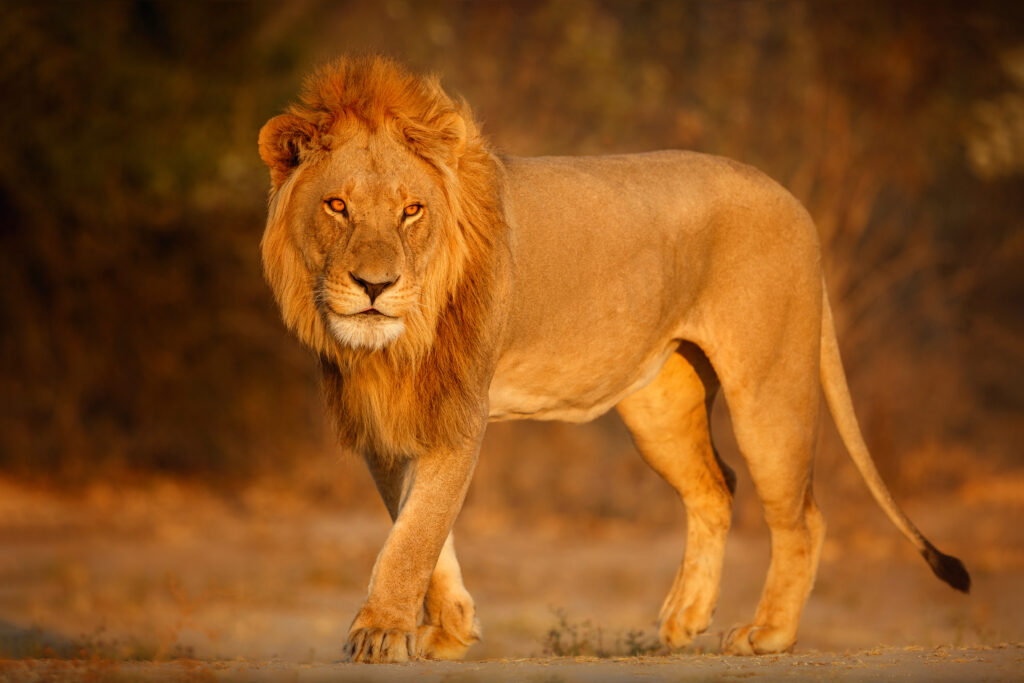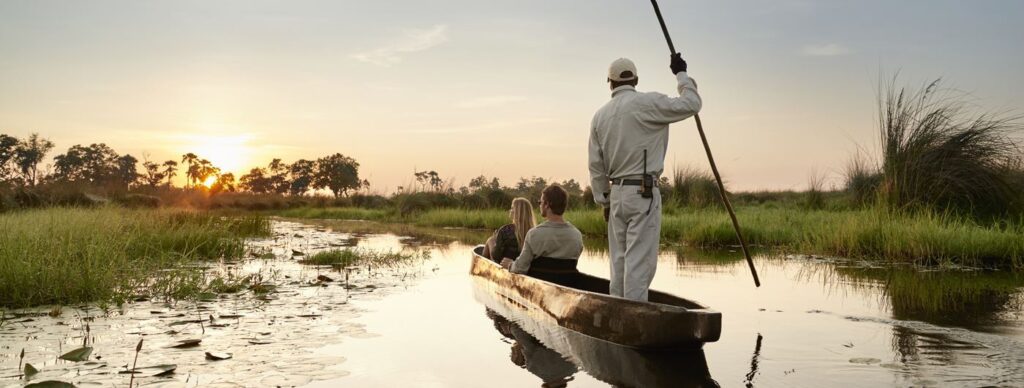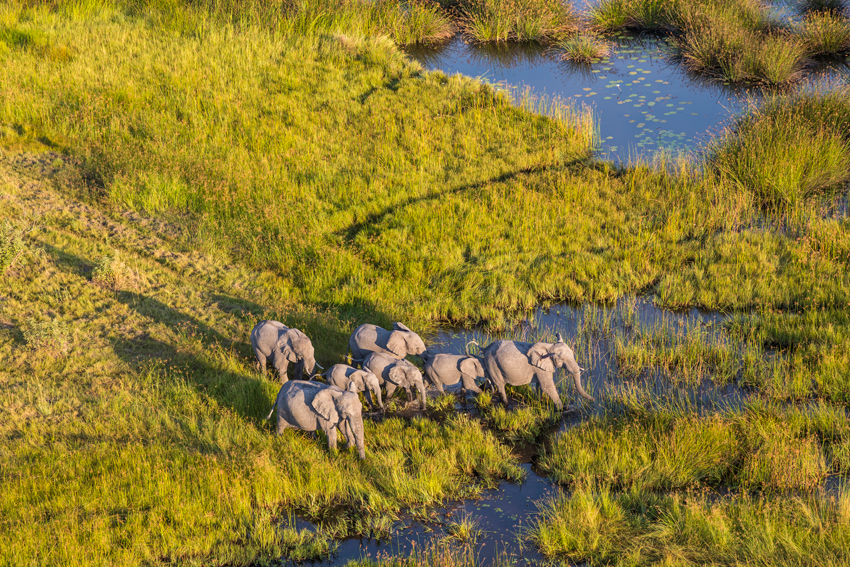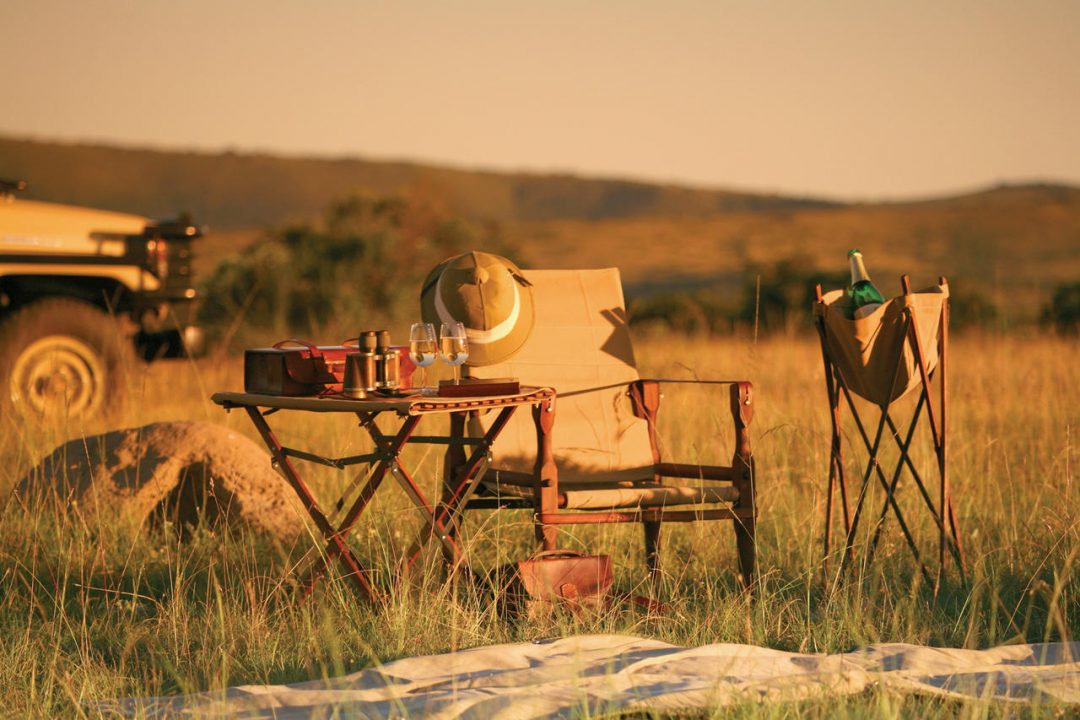Experience the unique and winding waterways known as the Okavango Delta on your holiday to Botswana. The area comprises 16 000 km sq of permanent marshlands and seasonally flooded plains. The Okavango Delta floods are fed by the Angolan rains, which start in October and finish in April. The Delta’s water ends in the Kalahari Desert – with over 95% of the water eventually evaporating – hence sometimes referred to as ‘the river that never finds the sea’.
Its meandering waterways, palm-fringed islands, ox-bow lakes, and lagoons give the area an exquisite beauty, as well as an abundant ecosystem. The annual flood tide revitalises ecosystems during the peak of the dry season, an extraordinary contrast between arid landscape and vibrant wetland. The transformation results in a large variety of wildlife. Some species leave during the rainy seasons and return during the drier winters.
When you embark on a Botswana safari through the Okavango Delta, you will explore an environment that supports large herds of elephant, antelope, and buffalo, as well as hippo, giraffe, crocodile, lion, cheetah, leopard, wildebeest, rhino, zebra and baboon. An Okavango Delta safari will bring you in close contact with over 400 species of birds, including the African fish eagle, Pel’s fishing owl, crested crane, lilac-breasted roller, ostrich and the sacred ibis.
Climate
Dry Season (May to October): During the dry season, the Okavango Delta receives minimal rainfall. This period corresponds with winter in the Southern Hemisphere. As a result, the delta starts to dry up, and the water levels gradually decrease. The drying process begins in the northernmost regions and progresses southward. By the peak of the dry season (around September and October), the delta’s channels and lagoons may be significantly reduced, leaving behind isolated pools of water. During this time, wildlife tends to congregate around the remaining water sources, leading to excellent game-viewing opportunities.
Flood Season (November to April): The flood season occurs during the summer months and coincides with the region’s rainy season. It begins with the arrival of floodwaters from the Angolan highlands, which flow down the Okavango River into the delta. These floodwaters create a dramatic transformation, replenishing the channels, lagoons, and floodplains with fresh water. The floodwaters peak around June or July, and the delta reaches its maximum extent. The lush vegetation, increased water levels, and expanded waterways attract a profusion of wildlife, including numerous bird species and large herds of mammals. It is an excellent time for boating safaris, mokoro (traditional canoe) excursions, and witnessing the diverse ecosystem in its full glory.
Mokoro Adventure
Make your Botswana safari a memorable one by exploring the Okavango Delta with a mokoro ride. The mokoro canoes are made from the dug-out trunks of large trees. The local Botswana people that hand-make these mokoros have become experts in this craft, making it their main source of income. Supporting this venture and travelling on hand-made mokoros are recommended for a Botswana safari.





